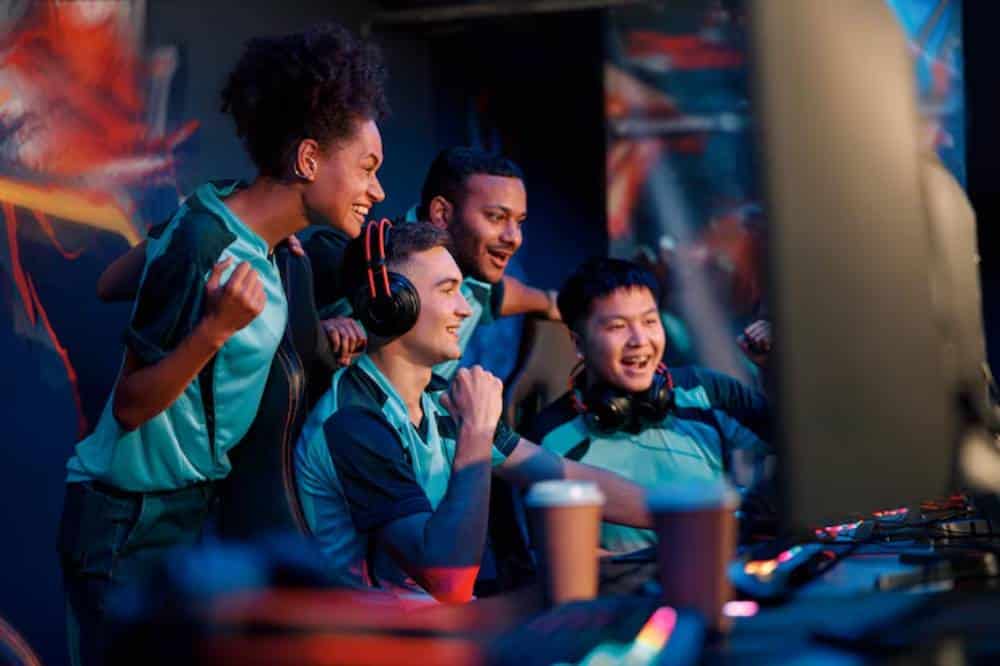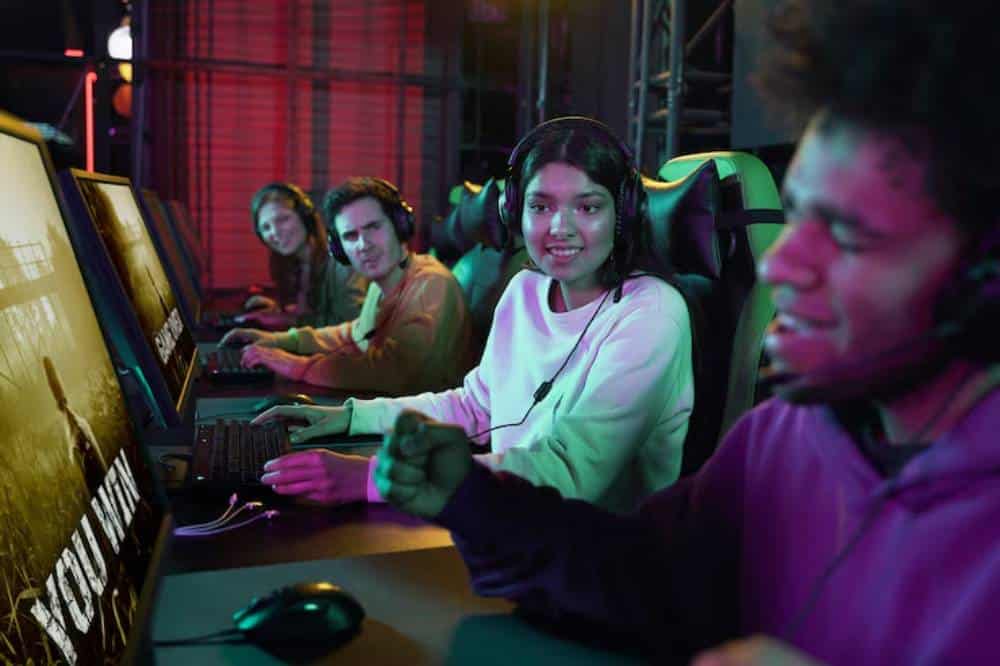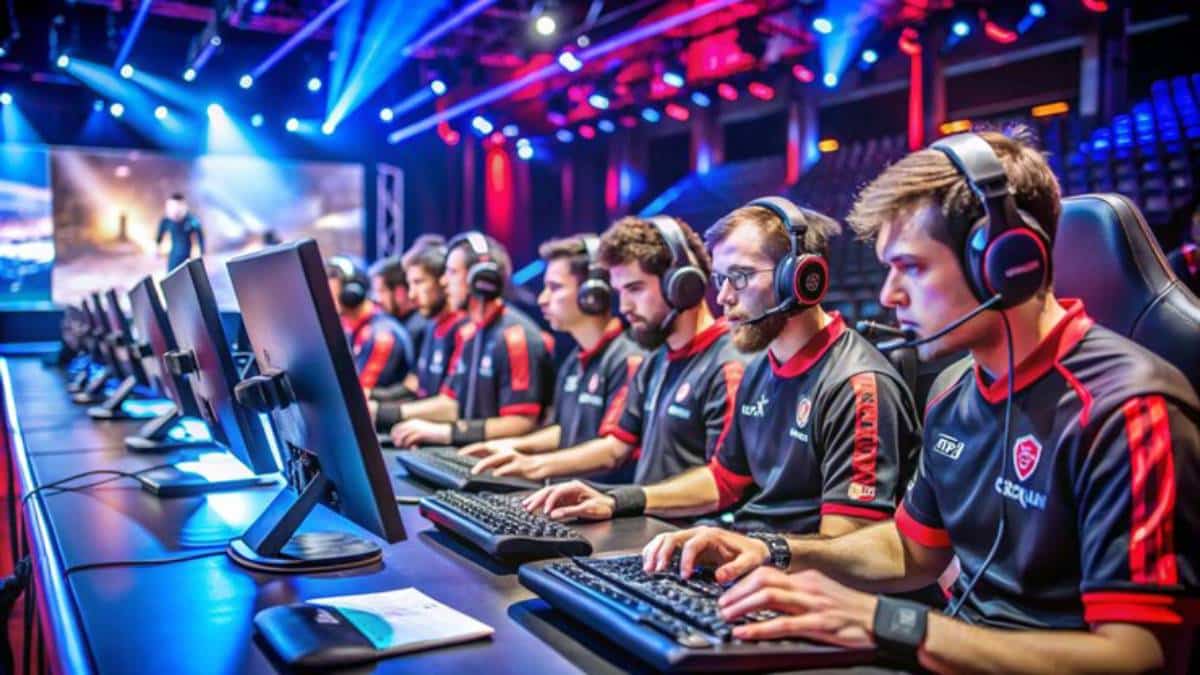
The Role of Sponsors in Esports Events
Esports has grown quickly from a niche hobby to a multi-million-pound industry in recent years. Sponsorships play a key role in this growth. Sponsors are essential for the success and sustainability of esports events. This blog explores the importance of esports sponsorships. We’ll look at how they fund gaming events and the nature of sponsor partnerships. Sponsorships are key in esports. Learning about them helps fans and industry insiders get essential insights into this exciting field.
Sponsorships are the heartbeat of financial vitality in esports tournaments. They elevate the audience experience, boost team performance, and ignite gaming innovation. As events expand, sponsor partnerships shape the tournament’s scale and calibre. Hence, sponsorship is not just important; it’s essential to a winning esports strategy.
Key Benefits of Esports Sponsorships: Why They Matter

Esports sponsorships are crucial for the industry. They provide the money needed to host big events. These sponsorships do more than fund gaming. They provide many benefits beyond just cash support.
Financial Support and Growth
Sponsors are essential for funding esports tournaments. Organising these events is expensive, and costs include venue rentals, production, prize pools, staffing, travel, technical equipment, and marketing. With sponsors, organisers can get the financial support needed to host events. This helps attract top talent and larger audiences, boosting industry growth.
Financial support from sponsors lets organisers try new formats and technologies. This helps create more engaging and interactive events, which boosts esports popularity. For example, funding from sponsors can lead to better streaming setups, new augmented reality features, and enhanced post-match analytics.
Enhancing Brand Visibility
Esports gives sponsors a unique way to boost brand visibility. It reaches a highly engaged and diverse audience. Millions watch events online and in person, allowing brands to connect with potential customers. Sponsorships let companies weave their branding into the event experience, creating memorable moments for fans.
Brand integration can take many forms. This includes in-game advertising, branded segments during broadcasts, product placements, and on-site activations. A gaming chair sponsor could give chairs for the tournament. They might also appear in camera shots. Also, energy drink sponsors often set up booths or give drinks to players and spectators.
Building Community and Engagement

Esports sponsorships also play a pivotal role in building community and fostering engagement. Sponsors can connect with the passionate fan base in esports by teaming up with popular players, teams, or events. This connection can boost brand loyalty and shape a positive view among consumers, who often see sponsors as helping the community grow.
Community engagement can involve sponsoring fan meetups, hosting online tournaments, supporting amateur leagues, or funding educational content on gaming careers. These actions help brands connect more with the esports ecosystem. They aren’t just advertisers. They become partners in the community.
Additional Expert Tips & Common Mistakes to Avoid
Esports sponsorships offer clear benefits, but managing these partnerships takes strategy. Here are expert tips and common pitfalls to avoid when working with sponsors in esports.
Aligning Brand Values
A key to successful sponsorships is to match the sponsor’s brand values with the esports event or team’s beliefs. Misalignment can lead to negative publicity and a backlash from the community. So, sponsors need to research the culture and values of the esports group they want to support.
A sponsor that cares about inclusivity and social responsibility should team up with tournaments or teams that share those values. But if it partners with controversial or poorly run organizations, it could hurt its brand and drive away its target audience.
Long-Term Commitment
A common mistake is seeing esports sponsorships as quick marketing campaigns. To get the best results, sponsors should focus on long-term partnerships. This allows for ongoing engagement with the audience. Such an approach boosts brand recognition and builds trust within the community.
Long-term deals also allow for deeper collaboration and co-branded initiatives. This might include fan engagement events, special product launches, and seasonal esports campaigns that change with the game or competition.
Measuring ROI
Measuring the return on investment (ROI) for esports sponsorships can be challenging. This is mainly due to the unique traits of the industry. Sponsors should set clear goals and metrics from the start. These might include brand awareness, audience reach, and engagement levels. Sponsors can improve their strategies by regularly reviewing these metrics. This helps them maximize the benefits of their partnerships.
You can measure ROI using several tools, like:
- Social listening platforms
- Web traffic analysis
- Viewer engagement stats
- Conversion tracking with affiliate links
Clear KPIs make it easier for sponsors to measure success. For instance, target an “X% increase in social media followers” or a “Y% uplift in product trials.”
Advanced Insights and Expert Recommendations
Let’s dive into esports sponsorships. Here are key insights and expert tips to help stakeholders make smart choices.
Diversifying Sponsorship Categories
Traditionally, esports sponsorships have been dominated by technology and gaming-related brands. More non-endemic sponsors are entering the space. This includes companies from the automotive, fashion, and food and beverage sectors. Diversifying sponsorship categories can create new revenue streams. This approach can attract a wider audience and help the industry grow.
Car manufacturers are sponsoring more racing esports events. Fashion brands like Louis Vuitton have partnered with game developers for digital collections. This cross-industry partnership expands esports’ appeal and introduces it to new market segments.
Leveraging Data Analytics
Data analytics helps us understand audience behavior. It also improves sponsor partnerships in esports. By using data insights, sponsors can tailor their marketing to reach specific demographics. This helps enhance fan engagement and improves the effectiveness of their sponsorships.
Advanced data analytics can show which audience segments are most engaged. It reveals what content resonates best and when viewership peaks. With these insights, sponsors can adjust campaigns in real-time. This helps create smarter and more personalized marketing experiences.
Collaborating with Influencers

Influencer marketing is a strong tool in esports. Working with popular streamers and content creators can boost a sponsor’s reach. These influencers have dedicated fans. They provide real endorsements that resonate with the community.
Sponsors can do more than just formal sponsorships. They can host co-branded livestreams. They can sponsor giveaways. Also, they can be featured in influencer content that connects with gamers. Authenticity is key. Fans trust products that influencers they admire recommend.
Conclusion: The Role of Sponsors in Esports Events
In summary, sponsors play a key role in esports events and are essential for the industry’s ongoing success. Esports sponsorships offer crucial funding for gaming events, boost brand visibility, and build community engagement. Sponsors can boost their impact in esports by aligning brand values, forming long-term partnerships, and using data analytics. This approach helps create a positive contribution to the esports ecosystem.
The competitive gaming scene is becoming more complex. This growth opens up more chances for sponsors to integrate meaningfully. Sponsors who take the time to understand esports will build strong, lasting relationships.
Now is a great time for stakeholders to dive into esports sponsorships. This exciting industry has many opportunities. Sponsors can hit their marketing goals by using new strategies and working with key players. They can also help shape the future of esports.
The esports world is always changing. Staying informed and flexible is key to success in this exciting field. Esports offers a great chance for brands to sponsor and for organisers to find partners. It offers a lot of growth and success. Embrace the challenge, and become a part of the esports revolution today!


